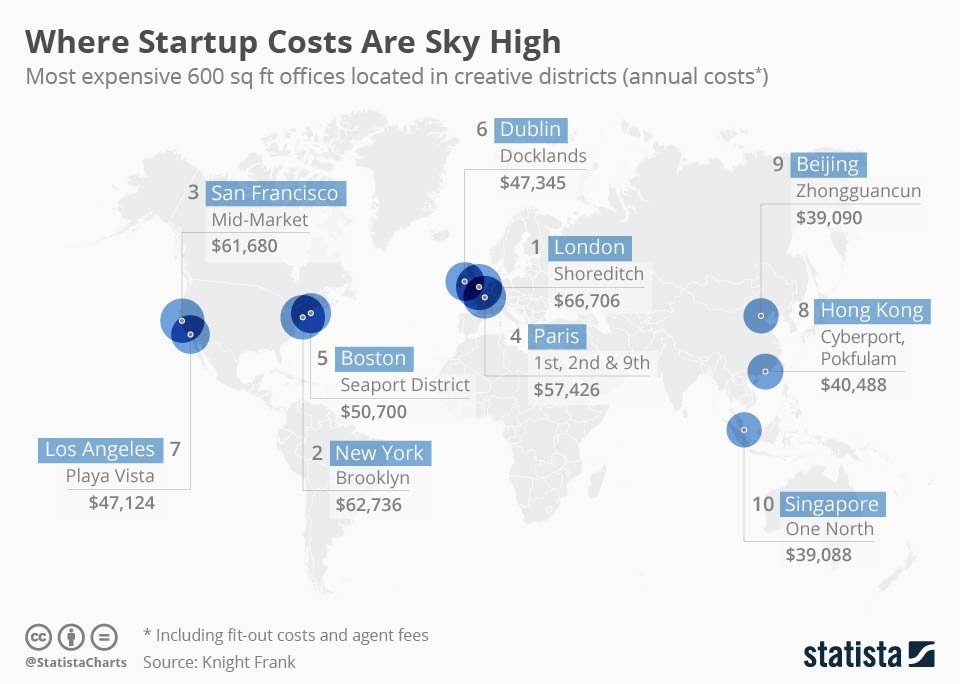If you’re among those whose new year resolution has been revolving around launching a tech start-up, we’ve got some significant information for you: Most expensive places to launch a start-up internationally. Thank us later!
In a recent report prepared by Knight Frank – a global property consultancy based in London, the most costliest places to launch a tech start-up have been enlisted. Yes, this world doesn’t treat start-ups equally.
The reason behind some cities being much more expensive places to launch start-ups than others is the fact that start-ups tend to pop up in places where other start-ups are existing already-along with the venture capital firms that they’re looking to be noticed by, of course.
The leading Real Estate giant from UK put together the costs of leasing and fitting out 600 Square Feet of office space in the tech and creative areas of the World’s top cities. This size is enough for a small office that consists of 4 initial employees and a conference room.
Start-ups are a very important part of helping an economy recover from slow growth. Even though it is speculated that most new businesses don’t even make it past the 10-year mark, the ones that do help us change our lives in many ways more than one.
According to the report, London is the costliest place to open a start-up with the minimum capital needed being $66,706. London is followed closely by Brooklyn, New York with San Francisco right at its heels. In fact, cities from the USA are taking up 4 slots in the top-10 spaces alone.
In Europe, Paris and Dublin are joining London on the 4th and 6th places respectively.
Some Asian cities also made it to the list with Hong Kong being in the 7th place, Beijing holding on to the ninth place and Singapore bringing up the rear with the 10th place on the list.
The authors of the report have warned that cities need to be more economically accommodating for startups or this might have an adverse effect on growth, especially in the tech and creative sectors.



